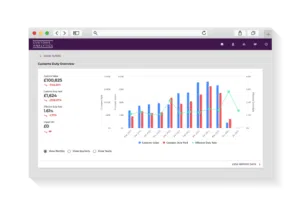Incorrect Inward Processing authorisations can lead to crippling customs duty and import VAT demands
A recent judgement ruled against Thyssenkrupp Materials (UK) Ltd should be viewed as a warning to anyone who is operating an Inward Processing (IP) authorisation. The judgment, detailed below, shows how seemingly small errors within the Bill of Discharge (BOD) led to a duty demand of £2.4 million and £6.4 million import VAT. Crucially, the demand is for the entire amount of duty during the period and not just the mistake that was made. This is hugely significant to businesses using IP as duty/VAT demands can be crippling to cashflow.
The Tribunal upheld HMRC’s stance that a single error on a single row of a BOD schedule incurs a customs debt not just in respect of the import duties related to that row but in respect of the import duties related to all of the rows in the relevant BOD.
UK Tribunal Judgement on Errors in Inward Processing Bills of Discharge
A UK Tribunal judgement has ruled that the failure to lodge an accurate Inward Processing (IP) Bill of Discharge (BoD) constitutes a failure to meet the obligations of the IP authorisation. As a result of this failure, the Tribunal confirmed that a customs debt arises for all of the entries on that Bill of Discharge, not just those entries for which an error is identified.
“An error in the import or disposal lines of one import entry gives rise, in respect of the entire quantity of the goods covered by the BoD, to a customs debt”
Tribunal Judge
As a result of the judgement, Thyssenkrupp Materials (UK faces a customs demand for the repayment of £2.41 million customs duty and £6.48 million Import VAT.
Points of Note Raised by the Judgement
- HMRC expects that the entries included on a BoD can be reconciled to the related MSS Import and Export data without the need for further investigation.
- The BoD must report the discharge of all imported goods. If the goods discharged within the BoD were imported in a prior period, i.e., an extension to the throughput period was granted, these must be clearly identified.
- To facilitate this reconciliation, the IP Authorisation holder should ensure that they submit a Post Clearance Amendment (PCA) to rectify any errors on the original customs entry and clearly identify the PCA within the BoD submission.
- If an error is identified on the original entry and either a PCA is not submitted, but the error is rectified within the BoD; or a PCA is submitted, but this is not clearly identified within the BoD submission, the BoD is deemed inaccurate, and the authorisation holder will face a customs demand for the customs duty and Import VAT for all entries within the BoD schedule.
- The following data elements are considered inaccurate if errors are identified and not rectified by a PCA or details of the PCA are not included within the submission: Commodity Code, Weight/Mass/Quantity, Customs Value, Entry Processing Unit (EPU), Entry Reference and Entry Date.
What Does This Mean for Your Business?
This depends on the individual circumstances of your IP and the nature of its use. However, we now see a more proactive approach from HMRC to enforcing customs compliance in the UK. Since leaving the EU, all duty is collected by the UK Exchequer (previously EU) and as such, there is more of an incentive to ensure the correct duty is paid. With this in mind, our recommendation to businesses is to ensure your regulatory obligations are all in order before an audit situation.
A freedom of information request shows customs audits are up 19% year on year, with penalties arising from those audits up 28%
How Can Barbourne Brook Help You?
Many of our clients operate IP so we are well aware of the common issues and exposures. We can provide training or offer a full service where we take the process off your hands entirely.
We can:
- Review your current BoD process and identifying areas of risk and quantifying exposures.
- Build and submit the periodic BoDs on your behalf.
- Implement our analytical software, CAT360, to record and report post-clearance amendments to ensure they are included in the BoD submission.
The same principles apply to Authorised Use (previously known as End-Use Relief), which also requires submission of regular and accurate Bills of Discharge.
Barbourne Brook are well versed in helping businesses avoid the pitfalls of non compliance, ensuring they gain competitive advantage and peace of mind when it comes to HMRC audit. Let our experts help you.
Put your business back in control.
Get in Touch
The Hop Merchant
21 Sansome Street
Worcester
WR1 1UH
Related Posts
30 June 2025
Is Your Customs Function Truly Under Control? A Quiet Risk Finance Leaders Can’t Ignore
In most businesses, customs compliance…
25 June 2025
In-House vs Outsourced Customs: Why the Smart Money Is on a Hybrid Approach
For companies trading internationally,…
24 June 2025
Protected: Customs Unsung Heroes: Why Finance Teams Should Stop Overlooking Their Customs Function
In many businesses, the customs team…



